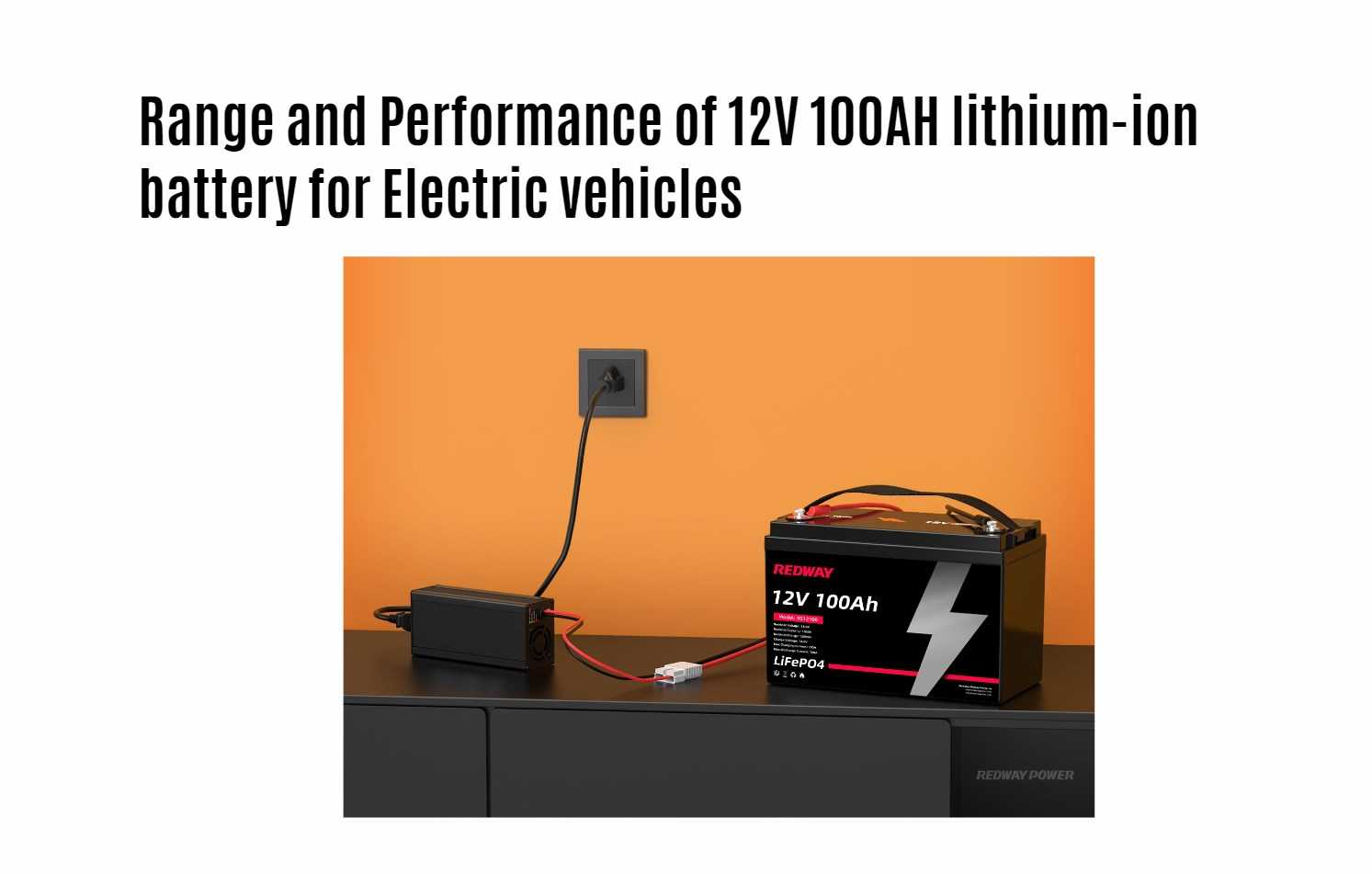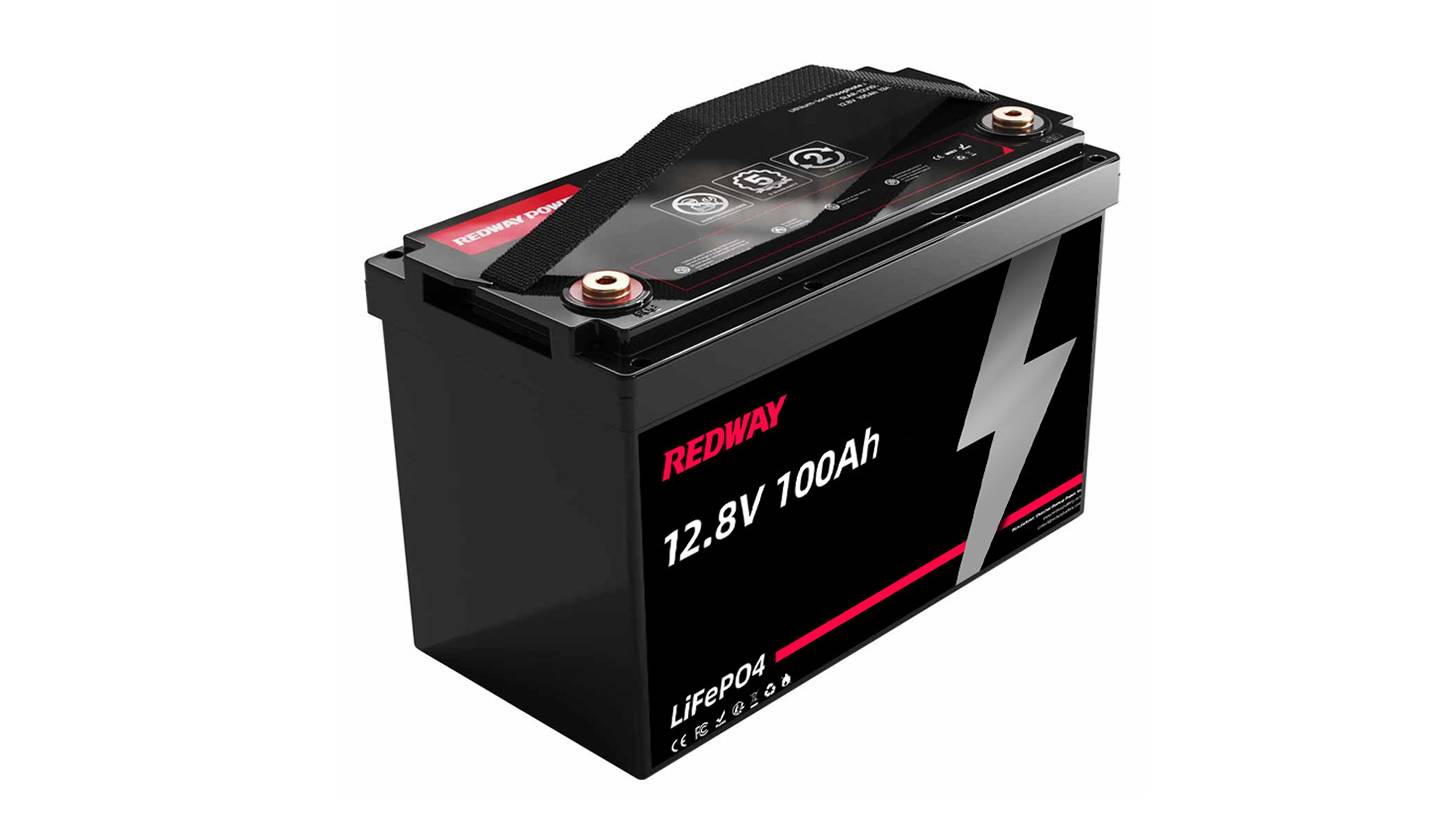At Redway, we delve into the versatile applications and performance characteristics of 12V 100AH lithium-ion batteries in the realm of electric vehicles (EVs). While these batteries aren’t typically utilized as primary power sources due to the higher voltage demands of EV motors, they play a crucial role as auxiliary power units, powering essential accessories like lighting systems, audio setups, and air conditioning units.
Understanding Range and Performance
The range and performance metrics of a 12V 100AH lithium-ion battery hinge on several critical factors, including the specific battery chemistry employed, the efficiency of the power management electronics, and the power draw exerted by the connected accessories. Despite their compact size and relatively lightweight nature, these batteries deliver substantial power output, making them ideal for prolonged operation of auxiliary systems in EVs.
Factors Influencing Performance
Battery Chemistry
The chemistry of the lithium-ion cells greatly influences both the energy density and discharge characteristics of the battery. Advanced formulations enhance energy efficiency and longevity, ensuring optimal performance over extended periods.
Power Electronics Efficiency
Efficient power management systems maximize the utilization of stored energy, minimizing wastage and optimizing the battery’s operational lifespan. This synergy between battery chemistry and electronics efficiency enhances overall system performance.
Accessory Power Consumption
The power draw from various accessories directly impacts the battery’s operational duration. Calculating power requirements accurately ensures adequate supply without compromising longevity or performance.
Operational Capabilities
In practical terms, a 12V 100AH lithium-ion battery sustains accessory operation for several hours, depending on load conditions and discharge rates. Rapid recharge capabilities further enhance usability, allowing swift replenishment during downtime with compatible charging equipment.
Comparative Analysis
While these batteries excel in auxiliary roles, their operational characteristics differ significantly from primary EV batteries. Unlike main power units that offer extensive driving ranges and high motor outputs, 12V 100AH batteries prioritize sustained accessory performance over extended periods.
Application Insights
Electric Vehicle Integration
Integration of 12V 100AH lithium-ion batteries into EV designs underscores their adaptability and versatility. They ensure reliable power supply to essential systems, promoting enhanced user comfort and operational convenience.
Environmental Considerations
The environmental impact of lithium-ion technology underscores ongoing efforts to optimize recyclability and sustainability. Advances in battery disposal and recycling protocols mitigate environmental concerns, aligning with global sustainability initiatives.
Conclusion
In conclusion, the application of 12V 100AH lithium-ion batteries within electric vehicles underscores their pivotal role in auxiliary power management. [Your Company Name]’s commitment to innovative battery solutions ensures unparalleled performance and reliability across diverse applications. For more insights into optimizing EV accessory power, explore our comprehensive range of battery solutions.
Related Posts
- Zapping the Voltage: A Simple Guide to Multimeter Testing for AAA Battery Voltage
- Will Voltage Affect Battery Performance?
- Will solid-state batteries replace lithium?
- Will Batteries Last Longer in the Freezer? Answers to Your Freezing Battery Myths!
- Will batteries last longer in the freezer?
- Will a 42V Charger Work on a 48V Battery? Understanding the Risks and Best Practices




